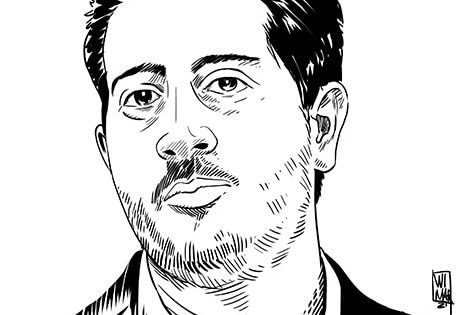(RSF/IFEX) – Journalist Mario Enrique Mayo Hernández of the independent Félix Varela news agency, who was jailed along with 26 other journalists in a spring 2003 crackdown and finally released for medical reasons on 1 December 2005, has described to Reporters Without Borders the psychological ordeal of his imprisonment: “The world of prison is the […]
(RSF/IFEX) – Journalist Mario Enrique Mayo Hernández of the independent Félix Varela news agency, who was jailed along with 26 other journalists in a spring 2003 crackdown and finally released for medical reasons on 1 December 2005, has described to Reporters Without Borders the psychological ordeal of his imprisonment:
“The world of prison is the absolute opposite of my own moral universe and my own outlook on life. Prison is full of danger. You have to be on constant alert against mistreatment by guards, fights among detainees, theft and humiliation. It is psychologically traumatizing, a permanent source of stress for someone like me who defends his ideas.
“The sudden transfers from prison to prison [he was relocated five times] aggravated the trauma because it made it impossible to adapt. I was initially held in Holguín [in the east], then in two prisons in Santiago de Cuba [in the southeast]. From the outset, I refused to accept that I was a prisoner. I believe the transfers were a way of punishing me for this.
“I even staged several hunger strikes. That is why I was admitted to the military hospital in Havana’s Combinado del Este prison. Some time passed before I was treated. The wait was also torturous.
“The prison authorities finally agreed to move me closer to my family by sending me to Camagüey’s Kilo 7 prison. The time in jail became harder and harder to bear. The director of the psychiatric hospital in Camagüey helped me to get by, but I would rather have departed this world than continue living in such conditions. It was a question of conscience.
“I never thought I would be released so soon. On the first of December, two prison officials came to see me. They told me that the director of Kilo 7 wanted to see me and they took me to his office. There was a state security agent there. I was very excited to learn that I was to be given medical parole. I was so worked up about it that the officials had to call my mother to tell her because I was unable to find the words to talk to her.
“I believe that I managed to make it through thanks to poetry. I wrote poems in prison, especially about my wife, my mother, and my city. When I got out, I learned that, thanks to my wife, I had been awarded a poetry prize at a meeting of dissidents in Puerto Rico. For the time being, I need to rest and to write for myself. I am still being treated for depression, though I am steadily cutting back on the dosage [of anti-depressants].”


